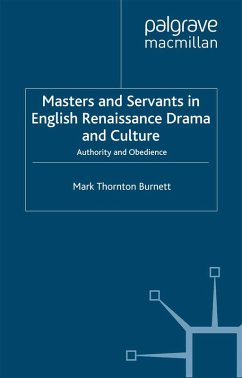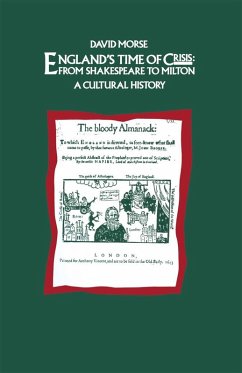Drawing upon archival material as well as the drama, popular verse and pamphlets, this book reads representations of masters and servants in relation to key Renaissance preoccupations. Apprentices, journeymen, male domestic servants, maidservants and stewards, Burnett argues, were deployed in literary texts to address questions about the exercise of power, social change and the threat of economic upheaval. In this way, writers were instrumental in creating servant 'cultures', and spaces within which forms of political resistance could be realized.
Dieser Download kann aus rechtlichen Gründen nur mit Rechnungsadresse in A, B, BG, CY, CZ, D, DK, EW, E, FIN, F, GR, HR, H, IRL, I, LT, L, LR, M, NL, PL, P, R, S, SLO, SK ausgeliefert werden.









